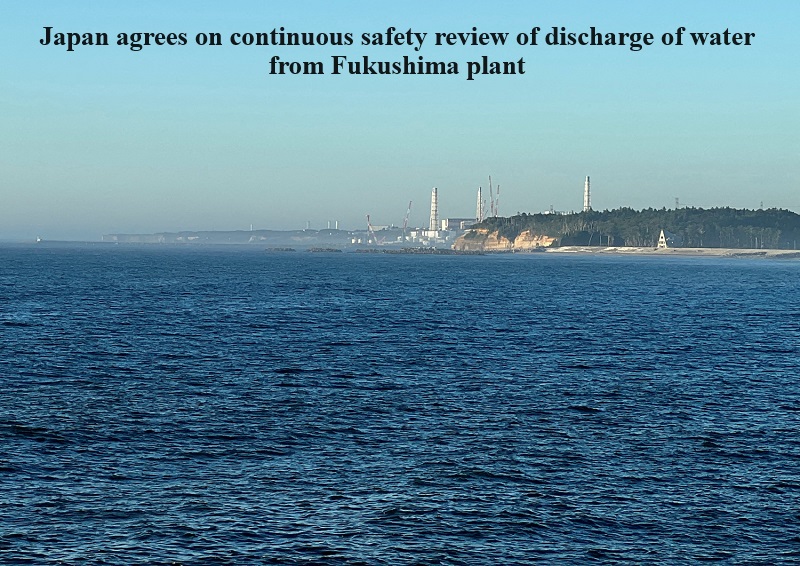
On Monday, an agreement was inked between the International Atomic Energy Agency (IAEA) and Japan, outlining the comprehensive and continuous safety review of the discharge of treated water from the Fukushima Daiichi Nuclear Power Station. The signing took place during the United Nations General Assembly (UNGA) in New York, with IAEA Director General Rafael Mariano Grossi and Japanese Foreign Minister Kamikawa Yoko putting pen to paper.
According to the statement, the IAEA has been evaluating the safety of Japan’s plan for handling treated water since it was first announced in 2021, and this agreement specifically addresses the agency’s long-term activities during the discharge process.
The agreement delineates five primary areas of focus for the UN atomic agency’s safety review work, which are as follows:
Monitoring and assessment, with a focus on safeguarding people and the environment.
The IAEA’s presence in Japan and at the Fukushima Daiichi Nuclear Power Station (FDNSP), including conducting on-site analysis.
Regular Agency review missions.
Confirmation of Japan’s source and environmental monitoring through independent sampling and analysis.
Outreach and awareness activities, including the dissemination of key information to the public.
The statement emphasizes that these areas will enable the IAEA to ensure that relevant international safety standards are consistently upheld throughout the discharge process, with real-time and other monitoring data made available on the agency’s website.
Director General Grossi commented that the agreement establishes broad parameters for the agency’s ongoing presence at the site to carry out monitoring, corroboration, and assessment activities essential for transparency and building confidence, both domestically and internationally, that the discharge will not harm people or the environment.
Japan initiated the release of treated radioactive water from the Fukushima plant last month, sparking international concerns, particularly from China, which imposed a ban on all seafood imports from Japan.
Russia also expressed concerns about the discharge of treated radioactive water, calling on Tokyo to provide detailed information about the process. Russian foreign ministry spokesperson Maria Zakharova stressed the need for transparency and openness from Japan and called for monitoring of the radiological situation in areas where the discharge occurs.

Post Your Comments